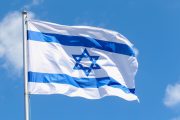
Turkey could host peace talks between Sudan’s warring factions, Turkish President Recep Tayyip Erdoğan informed Sudanese army chief General Abdel Fattah al-Burhan on May 9.
“President Erdoğan voiced his sadness and concerns over the increase in casualties and injuries in the infighting in Sudan,” an official Turkish statement about Erdoğan’s call with the Sudanese army chief read, and Turkey “is ready to host the talks if a decision is taken to start comprehensive negotiations.” Both leaders also talked about evacuating Turkish citizens in Sudan and working with the UN to ensure the needy obtain the help they need.
Clashes between the Burhan-led army and the paramilitary Rapid Support Forces (RSF) led by his deputy, General Mohamed Hamdan Daglo, also known as Hemedti, since mid-April have led to hundreds of casualties and thousands of injured. Some 100,000 refugees have escaped overseas to countries such as Chad, Egypt, and Ethiopia.
Since May 6, representatives from Sudan’s warring parties have been in Saudi Arabia for discussions that international mediators hope will cease the conflict.
Success in brokering peace for Sudan could function as a last-ditch boost for Erdoğan as he looks to fend off rival Kemal Kılıçdaroğlu in the upcoming Turkish presidential elections on May 14.
Notably, Erdoğan had suggested mediating Sudan’s conflict a few days after it began, offering to host direct talks in Ankara. However, sources have confirmed that Burhan dismissed opportunities for negotiating with the RSF commander before they withdrew from Khartoum.
Hemedti told Sky News Arabia he refused to negotiate with Burhan, but accepted to sit with the “honorable members” of the Sudan Armed Forces.
Separately, on April 22, three Gulf countries suggested an initiative for the warring military parties to address the crisis and cease violent confrontations in Khartoum. Moreover, U.S. Secretary of State Antony Blinken reached out to his counterparts in Sudan’s neighboring countries to prolong the humanitarian truce that was slated to end April 25.
Erdoğan has courted the military leaders of Sudan since the 2019 toppling of his ally Omar al-Bashir. The Turkish government regarded Saudi Arabia, the UAE, and Egypt as mainly responsible for Bashir’s ouster. With Bashir’s toppling, the fates of the 22 agreements he had signed with Sudan were left hanging.
Nonetheless, intent on keeping the deals inked with Bashir, Erdoğan decided to woo the new Sudanese rulers. Hence, Turkish Vice President Fuat Oktay invited Hemedti to Ankara in May 2021 and Burhan in August of that year. Both sides inked new agreements, including Sudan’s leasing of 100,000 hectares of cropland to Turkey.
Turkish-Sudanese ties were strengthened with Erdoğan’s 2017 visit to Khartoum, resulting in a deal to lease the Red Sea island of Suakin, previously an Ottoman outpost, to Turkey for redevelopment, as well as plans to bolster military ties and economic cooperation. In 2018, a Turkish company inked a $1.1 billion contract to construct a new airport in Khartoum.
However, Cairo and Riyadh were incensed at the Suakin deal in the wake of reports of Turkish plans to set up a naval base on Suakin to increase its clout. The Gulf backers of Sudan’s military leaders have expressed reservations about the Suakin deal, thus hindering Turkish plans to construct military training facilities in Sudan. Also, bilateral trade in 2022 was only $680 million, far short of the $10 billion goal set during Bashir’s rule.
In the meantime, Erdoğan and his allies are keen on adopting a conciliatory attitude towards both Hemedti and Burhan. However, Ankara may ultimately support Burham should the rivalry intensify, to maintain the institutional ties between both countries. On his end, Hemedti has been making pragmatic allies with the Gulf states, the United States, and Israel. Just like Erdoğan, Hemedti has tried to leverage Western-Russian competition and pitch himself as a leader who opposes illegal migration to Europe and promotes democracy.
On May 6, Turkey declared that it would shift its embassy in Khartoum to Port Sudan after gunfire on the Turkish ambassador’s car, Foreign Minister Mevlüt Çavuşoğlu said. “With recommendation from the transitional government and Sudan army, we decided to move our embassy temporarily to Port Sudan for security reasons,” he told reporters in the southern city of Antalya. The car of İsmail Çobanoğlu, the Turkish ambassador in Sudan,was attacked by assailants, though no one was harmed, a Turkish diplomatic source reported, and Çobanoğlu“remains in good health.”
Çavuşoğlu said on May 11 that Turkish embassy personnel in Khartoum arrived at Port Sudan that same day amid ongoing clashes. Speaking to Turkish news broadcaster AHaber, he said: “There are violent clashes in the neighborhood and the street where our embassy is located, [so] we have decided to temporarily move our embassy to Port Sudan (from Khartoum), [and] our colleagues arrived in Port Sudan today.” He added that the embassy staff were trapped and left without water and food, and that Erdoğan rang Burhan before relocating embassy staff.
Responding to The Economist’s cover stating that “Erdoğan must go,” Çavuşoğlu said: “The cause of their greatest discomfort is in the last 10 days. They do surveys all the time. Erdoğan will win. Therefore, how can we block Erdoğan’s way, this is their main problem. The vote of our president is increasing day by day. They panicked when they saw the campaign rallies in Istanbul, Ankara and İzmir, when they saw the other rallies, and when they overlapped with the polls.”
In relation to the Russo-Ukraine conflict, Çavuşoğlu said that enforcing sanctions on Russia would not benefit Turkey in the areas of tourism, trade, and energy.




